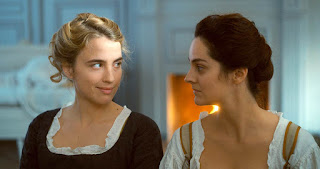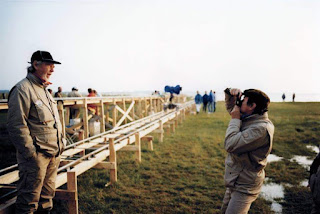The Battle of Algiers (1966), Gillo Pontecorvo
Fundamentally establishing itself to be a revolutionary piece of filmmaking, Gillo Pontecorvo's extraordinary vision is a foundation on France's suppression of the 1950s Algerian uprising.
Evidently working on the political fanaticism, 'The Battle of Algiers' excruciatingly criticizes on the filth of war, even though the entire allegory channels through rebellious missions and solidarity of soldiers.
While incorporating Italian Neorealistic traits quite often, the antihero of the plot has been allowed a subsequent amount of development on it's character idiosyncrasy or at least a prominent connecting link with realistic backgrounds for the viewer's indomitable association.
Commencing the narrative with a sequential drama of brutality with having a tortured revelation of a fighter's whereabouts from an Algerian national, Pontecorvo's masterful treatment on it's befalling eventuality through an extremely taut and tensed up narrative is but one of the brilliant aspects of the film's mechanism.
Teasing the stylized play of dramatic ordeals a bit for your imbued perception on it's context, our antihero Colonel Mathieu (Jean Martin) the paratroop commander entrusted by the French government with putting down the Algerian revolt, is the centerpiece to the most remarkable sequence showing off his leading a triumphalist, introductory parade down the main street, reassuring honest citizens that the French army's dominance and crushing of the alleged terrorists is nothing but inevitable.
Having witnessed the mentioned sequence, it baptized my sense in a demeanor that it's deposition among the brightest and most dominating of cinematic sequences was only a matter of growing moments.
Perhaps the greatest achievement of the film lies not in it's merging of culturally influential factors of the French or the Italian Neorealism for that matter. What truly will subdue your sense of perception on the intrinsic or rather the urgency of it's grand play of thrill, is it's critical examinations and an absolutely realistic and dramatic commentary on it's scrutiny of war that stands to be utmost effectual to non participating pedestrians and definitely as well as soldiers.
Even though Pontecorvo laid it's fundamentals on historical relevance with achievable fidelity, his soft eye of compassion subtly lurks in the molding of the fatalistic characters, always leaving a margin of sentimental attachment and empathy from us.
The cinematic accomplishment of a political conflict that fascinates through it's revolutionary rage and condemnation on oppression highlighting the locus of colonialism, gets it's devastating potency only complimented via technical aesthetics resulting in the masterful scores and camera works and a bit of ever discerning morality.








Neat.
ReplyDeleteThank you sir!
Delete